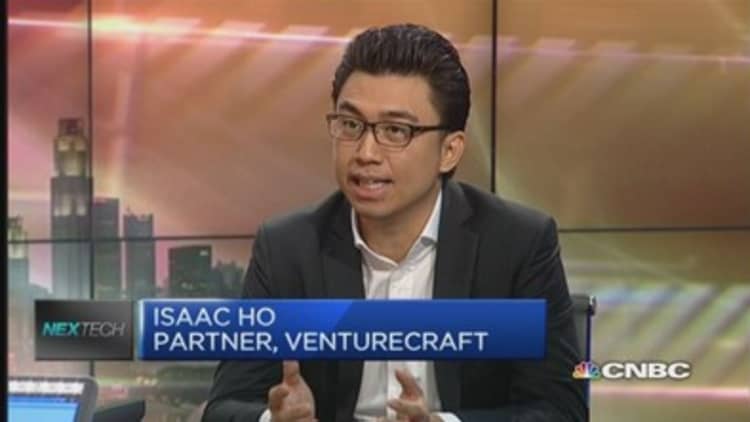Within a short space of time, the cash available to new start-ups in Southeast Asia has gone from virtually non-existent to abundant.
And that, say analysts, reflects the potential a growing number of investors see in firms that mostly start in Singapore and expand into the much bigger Southeast Asian market.
"There is now greater access to capital than ever before," said Yiping Goh, the co-founder of Southeast Asian eCommerce aggregator AllDealsAsia.com.
"When I started my first company in 2004, there were less than five significant startup funds and most of the five were not even really active," said Goh, who has just set up ecommerce firm MatahariMall.com in Indonesia, added. "Today there's a lot more investors interested in Asia and capital is going to keep growing."
Huge potential
Compared to its Asian peers China and India, Southeast Asian markets are seen as relatively underdeveloped and with huge potential given a growing class of consumers.

According to the Organisation for Economic Co-operation and Development, Asia will represent 66 percent of the global middle-class population and 59 percent of middle-class consumption by 2030, compared with 28 percent and 23 percent, respectively in 2009.
This is the backdrop to increased interest by funds in Southeast Asian start-ups.
Take Lazada, the Southeast Asian online retailer often compared to Amazon, for instance. Set up by start-up incubator Rocket Internet in 2012, Lazada raised $249 million in late 2014, valuing the company at about $1.25 billion.
Japanese mobile telecom giant Softbank meanwhile invested $250 million last December in Grabtaxi – one of Southeast Asia's fastest growing taxi app services.
Read MoreShake up ahead for Singapore's telco sector?
"I think I was well set up by my existing group of investors, GVC, Tiger Global, Vertex -- a subsidiary of [Singapore state investor] Temasek –those guys have really been helping us grow and set up a great connection from one investor to another," GrabTaxi founder Anthony Tan told CNBC last month, talking about funding for the start-up.
"And they know that we are super local, super focused on the region and that there was no other player that really made a difference," he said.
All Change
Vinnie Lauria, who co-founded Golden Gate Ventures which invests and mentors new start-ups in Southeast Asia, said he was travelling around Asia in 2010 when he decided to look into the local start-up scene.
"I looked up the local start-up scene in 15 different countries and ended up noticing that in Southeast Asia, most of the start-ups I spoke to all had a similar problem – difficulty raising money," Lauria said.

"Four years ago, capital for new start-ups was virtually non-existent here. The past couple of years have really changed that," he added.
Venture capital invested in Singaporean tech firms by funds has been rising steadily in recent years, reaching $1.71 billion in 2013 before slipping back to about $459 million last year, according to data from Hong Kong-based Asian Venture Capital Journal. That still it put it ahead of its Southeast Asian peers and Hong Kong in 2014.
Lauria said that for most start-ups the challenge up until recently was finding investors for series A funding, investments of between $1 million to $5 million.
"With 2015, we're starting to see that change; we're launching a fund to do series A and there are a number of funds that are also coming online do to this series A funding," he said.
Increased access to investments to start-ups in Singapore helps fill a gap in a country, which has a generally strong infrastructure for entrepreneurs, analysts say.
Singapore ranks number one for the ease of doing business, according to the World Bank.
Universities and polytechnics run entrepreneurship programs and private bodies such as the Founders Institute have been set up in recent years to mentor new businesses.
"Government involvement has been key for the last five years. Outreach to students and young aspiring entrepreneurs have created great teams," said Jeffery Paine, the founder of Founders Institute in Singapore.
Goh at All Deals Asia added: "More and more people are considering entrepreneurship, fundamentally because the start-up ecosystem has become more mature, the increased awareness and successful exits in recent years are inspiring the once dreamers to take action on their ideas."





